MURFREESBORO, Tenn. — Middle Tennessee State University’s Department of Chemistry is in its second year of the Scholarships for STEM, better known as S-STEM, scholarship program, allowing Pell-eligible chemistry or biochemistry undergraduate students and chemistry graduate students to conduct research, learn from faculty mentors and gain career and networking opportunities within the STEM fields of science, technology, engineering and math.

The program launched in Oct. 2023 by a team of faculty led by chemistry professor and principal investigator Andrienne Friedli, who used a $1.97 million National Science Foundation grant to fund the six-year scholarship program for chemistry and biochemistry students with unmet needs.
“We have already seen evidence that increasing MS salaries greatly expands the domestic student applicant pool,” Friedli said. “It is important to find additional funding for graduate students so that MTSU can be competitive in research productivity, which will lead to more financial support for graduate students and the research enterprise.”
She continued, “Most undergraduate students pay very little to nothing to attend the university, but scholarships help with living expenses and can make the difference between finishing in four years or extending to five or six. The extra mentoring and soft skills instruction provided through S-STEM also gives these students career advantages.”
There are currently nine supported graduate students, including graduate teaching assistants, who receive $22,000 per year and 15 undergraduate students who receive $7,000 per year for up to two years.
She later noted, “The fact that NSF chose to spend taxpayer funds on MTSU students is an honor but also an opportunity to advertise, grow and highlight our Chemistry MS and BS programs.”
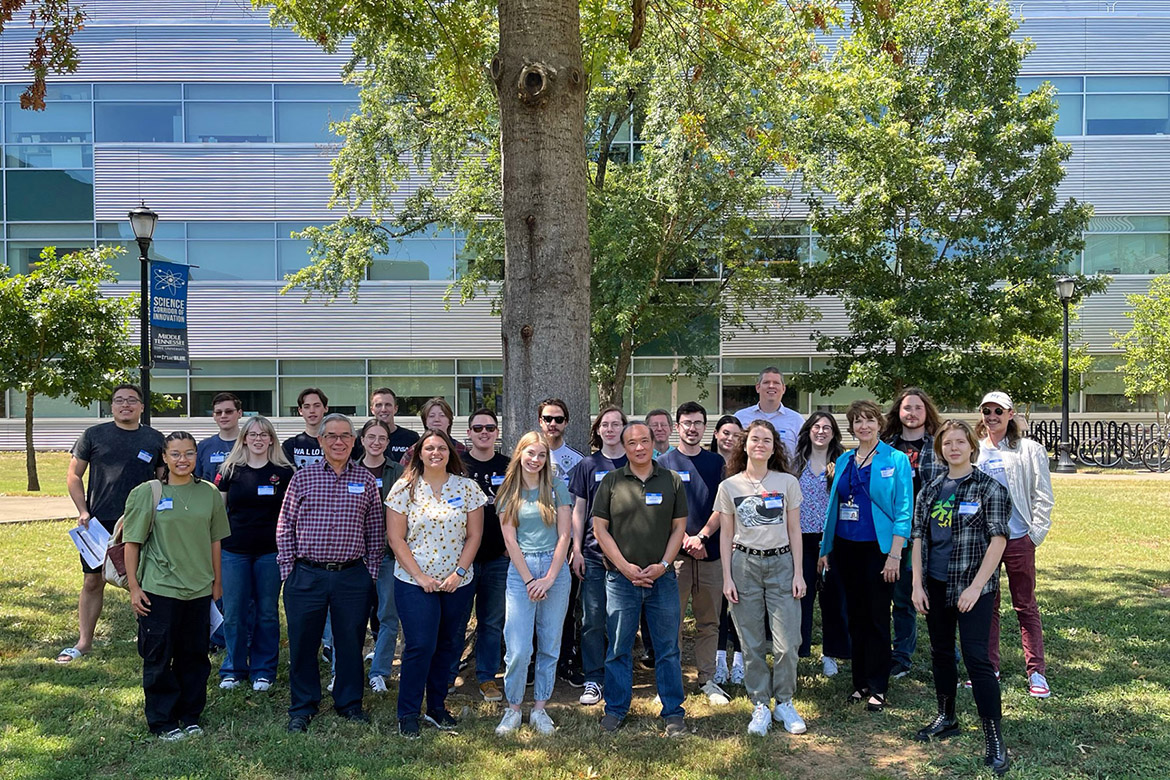
Improving students ‘ability to compete in the job market or post-graduate educational opportunities’

Austin Wolvington, 21, is a junior biochemistry major from Murfreesboro who has been a part of the program since April of this year.
“The S-STEM program is both a scholarship and a way to make connections with professors and other students,” Wolvington said.
There is also a paid summer option for undergraduate S-STEM students that allows them to begin or further research projects. Wolvington began doing research at the end of May and continued through the summer, which quickly exposed him to the nuances of research, he said.
“I spent the summer working with Dr. Justin Miller and his Ph.D. students, and now I have continued to work with them through the fall,” Wolvington said. “Without the S-STEM program, I would not currently be involved with research.”
He explained one of his primary mentors is Miller, who heads the lab he works in, but he also noted Justin Marsee, one of the doctoral mentors in the program, and Josh Couch, who isn’t a part of S-STEM but still assists Wolvington.
“When I went to talk to Dr. Miller, he explained that the DNA we use has a fluorescent tag on it, so we can measure how it binds to our enzymes. Working with fluorescence sounded really interesting to me, so I wanted to work with him,” Wolvington said.
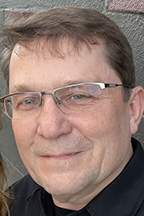
Richard Nagorski, chair and professor for the Department of Chemistry, broke down the education and research process of the program, “Classes provide foundational information in analysis, chemistry, biochemistry, inorganic, organic, physical and other areas.”
“The labs associated with the classes teach students techniques and methods of probing chemical questions,” he continued. “However, it is putting all this knowledge and the application of these skills to use in the research lab that is one the more powerful means for students to continue their education outside the classroom while improving their ability to compete in the job market or post-graduate educational opportunities.”
Sharing research at the American Chemical Society meeting
Two faculty members and 10 S-STEM students, comprised of both undergraduate and graduate students, traveled to the 75th annual Southeastern Regional Meeting of the American Chemical Society in Atlanta from Oct. 23-26, funded by the grant, to present their research. The theme of the symposium was “Advancing and Transforming Lives through Chemistry.”
Nagorski explained the benefits of students traveling to regional and national conferences, “These opportunities help the students realize their own growth when they are asked questions about their research, and they realize that they can answer the questions and also expand on their topic.”
“The students begin to grow their network of contacts in their area of study, which can pay huge dividends later in their career,” he continued. “Lastly, there is the social camaraderie of a trip of this nature. The students from MTSU will experience the conference as a group, and people who know each other by sight may develop deeper friendships that last a lifetime.”
Friedli shared similar thoughts, “Practicing scientific communication is a critical skill for a young scientist. Preparing for and attending conferences is a great learning experience.”
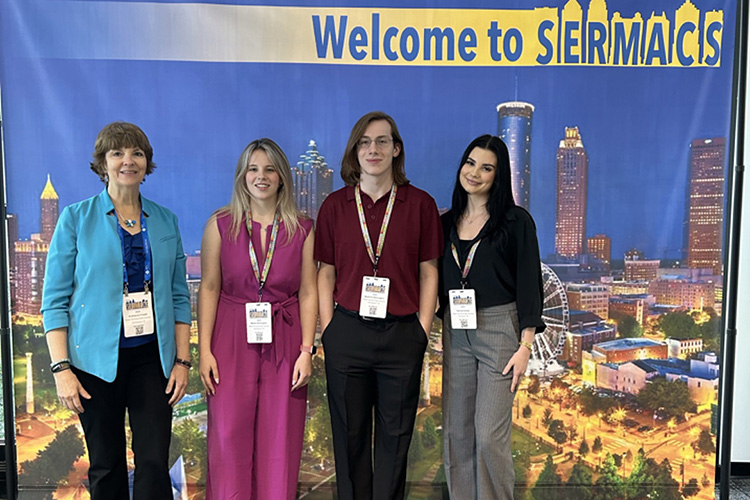
Wolvington is one of those ten students, and he stood alongside other undergraduate students who all presented their research projects through informative posters for two hours at the meeting.
Regarding his project, Wolvington said, “I have been working with an enzyme that breaks down polyaspartic acid, which is a biodegradable plastic.”
“This enzyme degrades slower when bound to DNA, so I have been testing how two different salts affect the binding of DNA to this enzyme in concentrations similar to what would be seen in the environment,” he continued.
He later noted, “This research is important because the enzymes we work with break down polyaspartic acid to free aspartic acid. Free aspartic acid is useful to the environment, while polyaspartic acid build-up in the environment would be harmful to the environment.”
Wolvington expressed prior to the event that he was nervous because he’d never presented research in this way before but also excited, since he’d get to network with people in his field and see their projects. After the event, he said he felt confident about the meeting and that around 10 people asked him questions to learn more about his project.
“It was a pleasure getting to know students better by traveling with them and witnessing them present their work at a scientific meeting for the first time,” Friedli said.
‘Great working with multiple of my siblings’
During his day-to-day life, Wolvington attends his classes, works on his project for several hours two to three times a week in a research lab on the third floor of the Science Building and then does his class homework and studying.
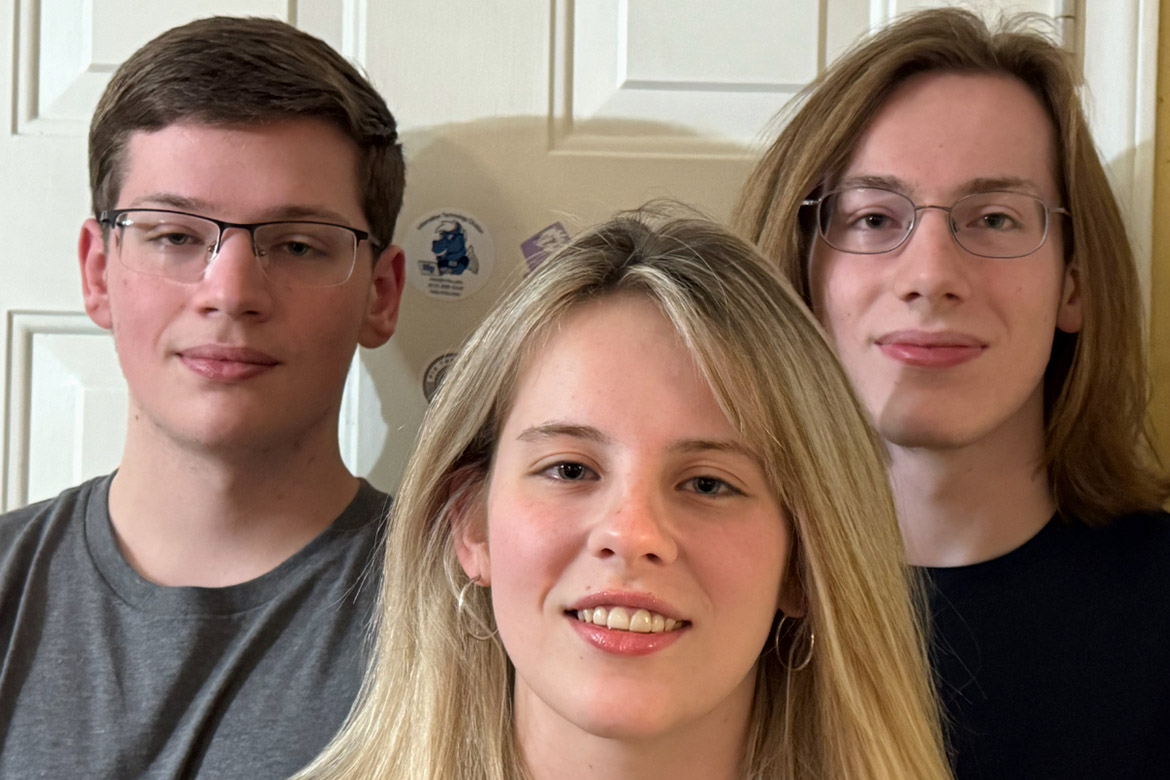
Outside of the classroom, he said he enjoys spending time with his family. Four out of the seven Wolvington children are currently attending MTSU, and three of them are chemistry students supported by the S-STEM scholarship.
“It is great working with multiple of my siblings. One thing that helps me learn is hearing difficult topics in chemistry told in the words of other students, so if I am unsure of how to do something, I can ask my siblings, and they can try to put it into their own words,” Wolvington said. “We also frequently talk to each other about our career options as chemistry and biochemistry majors, so they are great for helping me reflect on my academic goals.”
“Additionally, we all three work in labs at MTSU now. Even though we work with different professors, it gives us the opportunity to talk to each other about different fields of research, which is very interesting,” he continued.
Increasing chemistry majors ‘meets a critical need in our society’
Wolvington says his highlight of the program thus far are the monthly meetings in the Science Building.
“The meetings are one of the ways that the students within the program get in touch with professors and graduate students,” Wolvington said. “Within the meetings, we set goals for the future and look at different careers in chemistry.”
He said the monthly meetings helped him discover his desired future career in analytical chemistry as well as his goal of obtaining a master’s degree.
“My ideal career would be working in an industry lab using interesting chemical techniques to analyze food or test pharmaceutical compounds,” Wolvington said. “I want to help people, so making sure that food and medication is safe is a great way to do that.”
He said he’s excited for the upcoming Nov. 15 meeting because the cohort is touring the Pace Analytical National Center for Testing and Innovation in Mt. Juliet to see what careers within the center look like, which aligns with his career interests.
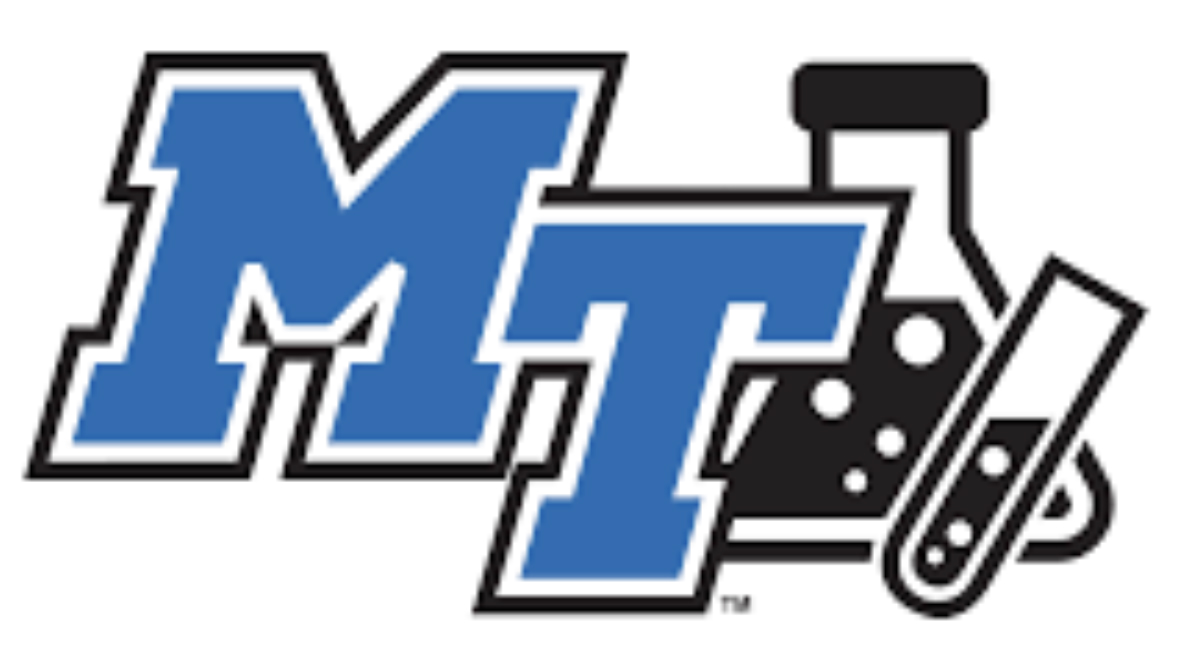
Nagorski emphasized the importance and need for more chemistry majors, both undergraduate and graduate, since careers in this field are fundamental for society, “American institutions do not produce the number of chemistry degree holders that are needed for the continued growth and maintenance of the chemical industry.”
“In fact, the number of persons seeking chemistry degrees in the U.S. has fallen by over 10% in the last three years. The S-STEM program is working to grow the numbers of students in chemical programs, which meets a critical need in our society,” he continued.
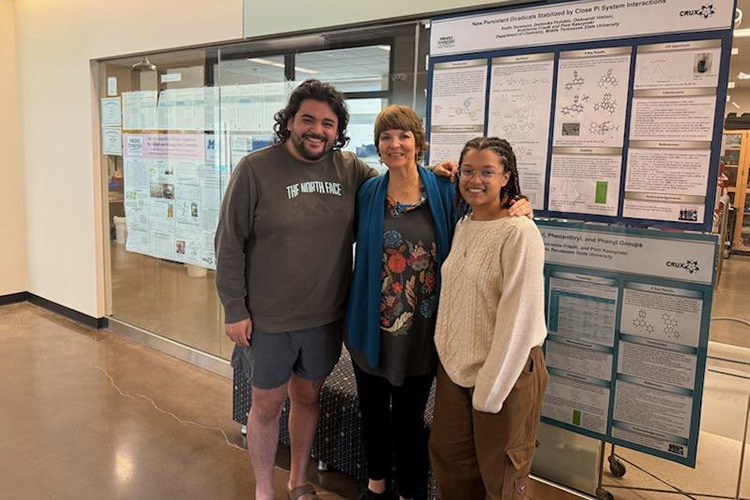
Sparing students the financial burden of college
Nagorski explained that majoring in chemistry “has a reputation of being a challenge and coupling that academic challenge with day-to-day financial challenges can be a daunting to first-year students,” but he noted that the S-STEM program works to bridge that gap.
Wolvington expressed his gratitude for the scholarship, “The grant itself is also very important because it helps relieve students of the financial stress involved with going to college, which will likely help students do even better academically.”
Nagorski mirrored these thoughts, “Many students struggle to pay their bills each year and must have outside employment to balance their monthly budget. These jobs, while critical to their ability to stay in school, do diminish their focus on their schoolwork and their involvement in research.”
The grant, he continued, “reduces some of the pressure on these students, which in turn allows the students to put more effort into their studies and research.”
Other S-STEM faculty from the Department of Chemistry include Kevin Bicker; Charles Chusuei; Ngee Sing Chong; Keying Ding; Scott Handy; Katy Hosbein; and Justin Miller. Evaluation for the program is conducted by Eric Oslund from the College of Education.
For more information on the S-STEM program and how to apply, visit https://chemistry.mtsu.edu/S-STEM/. Summer research applications for undergraduate students open in March.
— Maddy Williams (Maddy.Williams@mtsu.edu)

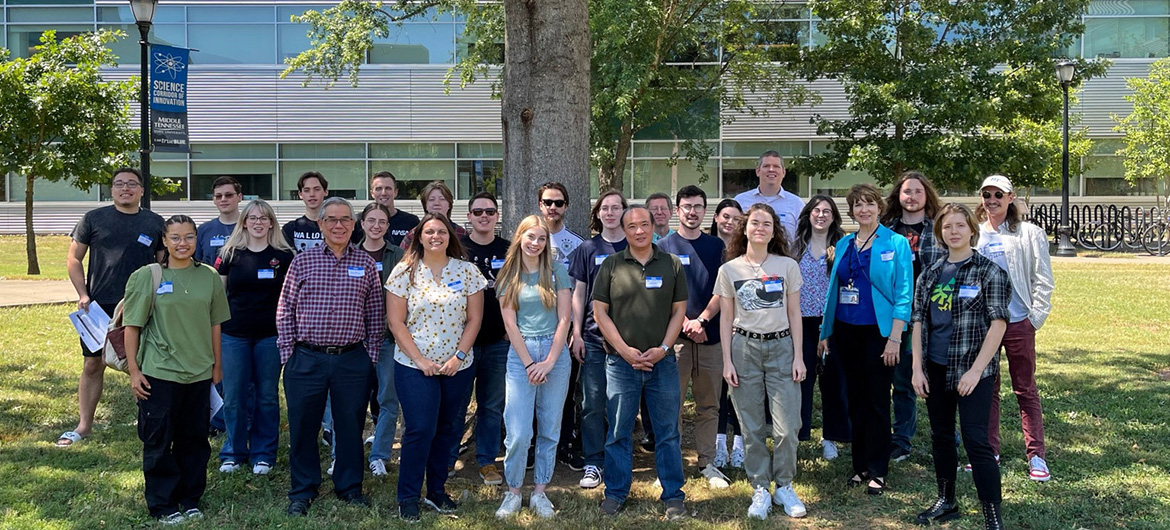
COMMENTS ARE OFF THIS POST